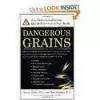-
Welcome to Celiac.com!
You have found your celiac tribe! Join us and ask questions in our forum, share your story, and connect with others.
-
Celiac.com Sponsor (A1):
Celiac.com Sponsor (A1-M):
-
Get Celiac.com Updates:Support Our Content
Fatigue, Muscle Pain Gone After Going Gluten Free?
-
Get Celiac.com Updates:Support Celiac.com:
-
Celiac.com Sponsor (A17):
Celiac.com Sponsor (A17):
Celiac.com Sponsors (A17-M):
-
Recent Activity
-
0
Penobscot Bay, Maine: Nurturing Gluten-Free Wellness Retreat with expert celiac dietitian, Melinda Dennis
untilHello! Join me and treat yourself to a four-day, three-night restorative gluten-free retreat in a peaceful, private coastal retreat setting near Penobscot Bay in Maine. Dates: April 10-13, 2026 Enjoy engaging classes... -
- Scott Adams replied to Jane02's topic in Gluten-Free Foods, Products, Shopping & Medications6
Desperately need a vitamin D supplement. I've reacted to most brands I've tried.
I do not know this, but since they are labelled gluten-free, and are not really a product that could easily be contaminated when making them (there would be not flour in the air of such a facility, for example), I don't really see contamination as something to be concerned about for this type of product. -
- Jane02 replied to Jane02's topic in Gluten-Free Foods, Products, Shopping & Medications6
Desperately need a vitamin D supplement. I've reacted to most brands I've tried.
Thanks @Scott Adams. Do you know if Kirkland Signature supplements share facility and production lines with other products containing gluten? I'm worried that I'll react to this brand just like I did with other gluten-free labelled supplement brands.
-





Recommended Posts
Archived
This topic is now archived and is closed to further replies.